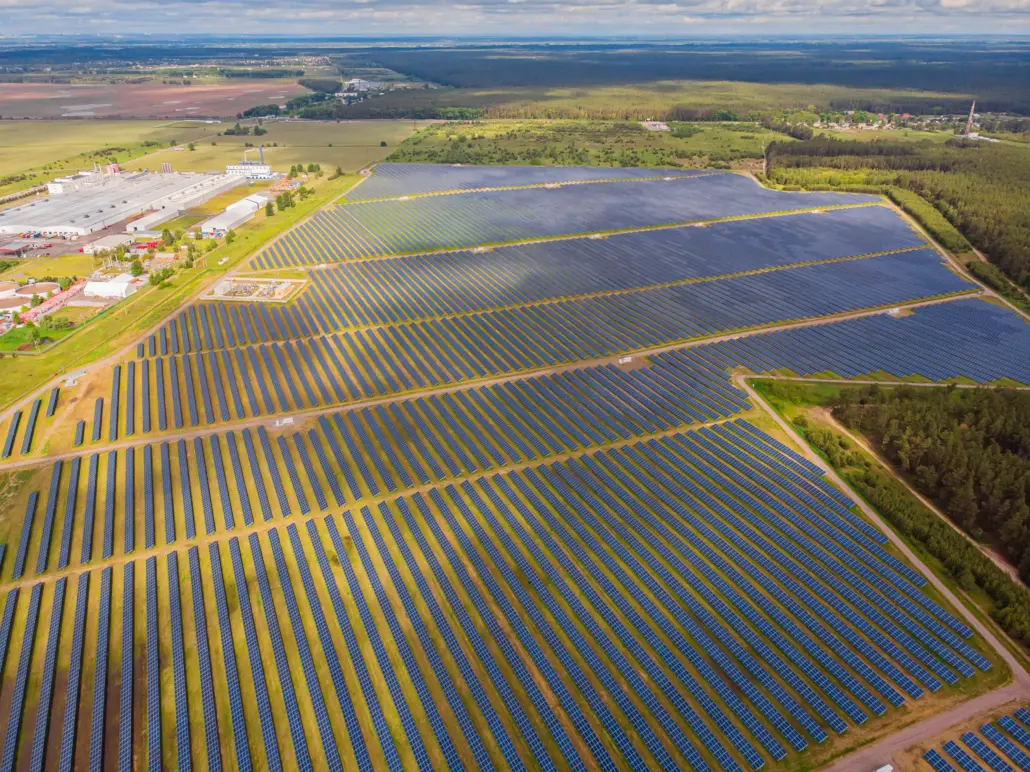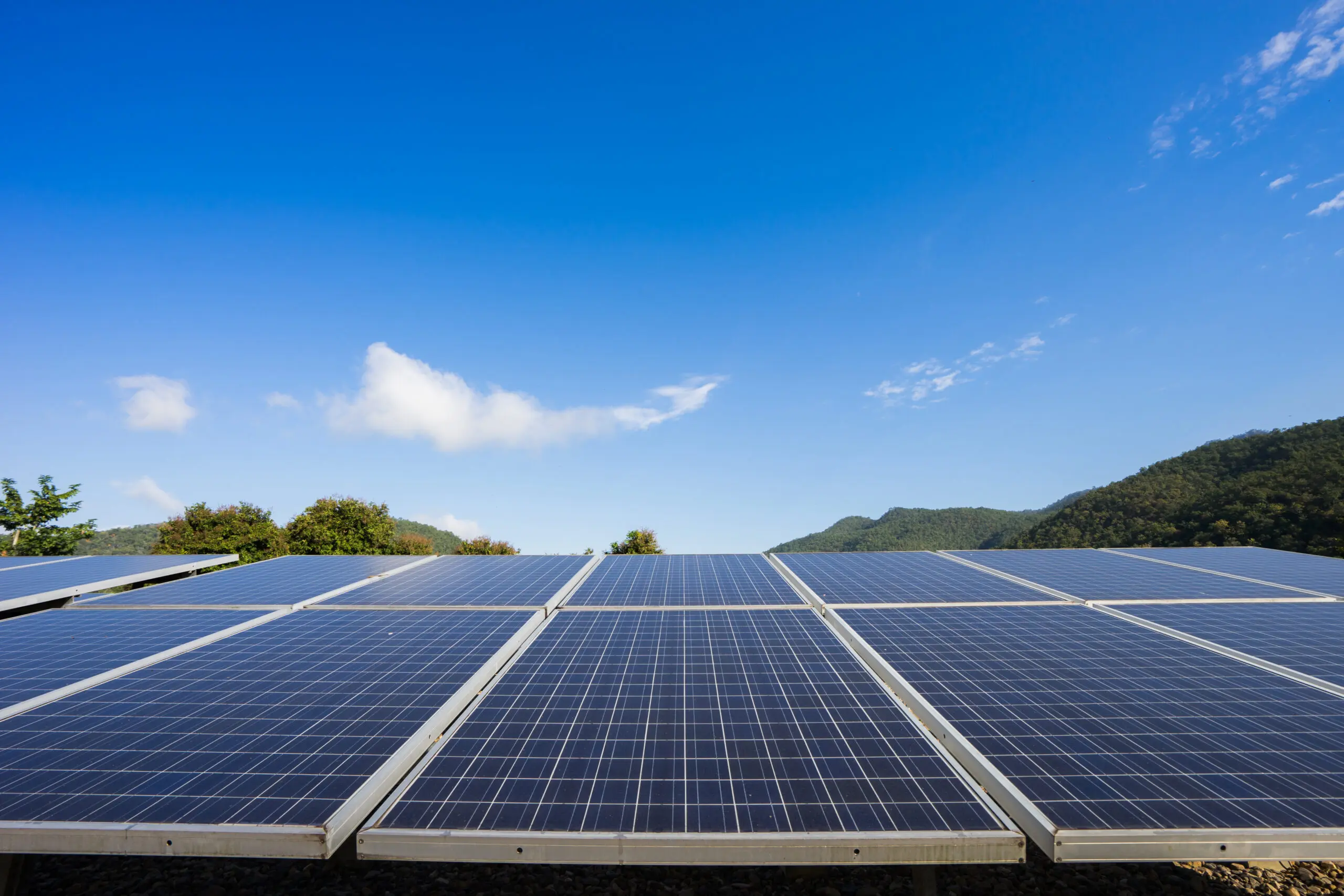The Food Industry and Energy Transition: A Recipe Toward Competitiveness

Industry leaders, including Grupo Bimbo, Nestlé, and PepsiCo, have recognized that sustainability represents the critical pathway to cost reduction, competitive advantage, and compliance with increasingly stringent environmental regulations. Renewable energy has emerged as the primary catalyst driving transformation across the food sector.
Large food and beverage companies are accelerating their energy transition, making clean power a cornerstone of both their production strategy and their sustainability agenda. Evidence of this is that by 2024, Mondelez International had reduced emissions from its manufacturing processes by 37%. In the same year, 54% of the energy used in its production already came from renewable sources.
Grupo Bimbo has achieved comparable progress, reporting that 92% of its global electricity consumption derives from renewable sources—primarily solar and wind—by the end of 2023. The company now operates on 100% renewable electricity across 27 of its 34 markets. Concurrently, it has modernized its logistics fleet with over 5,000 alternative-fuel vehicles, including 2,500 electric units, as part of its comprehensive carbon reduction strategy.
Similarly, multinational corporations such as Nestlé are executing climate roadmaps aligned with Paris Agreement targets. The company aims to achieve 100% renewable electricity across its manufacturing operations by 2025, having already reached 95.3% in 2024 and surpassing its 2025 GHG reduction target of 20% ahead of schedule. Its forward-looking objectives include a 50% emissions reduction by 2030 and net-zero by 2050, underpinned by process electrification initiatives.
PepsiCo has established targets for a 50% reduction in Scope 1 and Scope 2 greenhouse gas emissions by 2030, a complete renewable electricity transition across global operations by 2040, and net-zero emissions throughout its value chain by 2050. In 2023, renewable sources supplied 80% of the company’s global direct electricity requirements, achieving 100% renewable power across manufacturing facilities in 40 countries.
This sector-wide commitment to integrating renewable energy into energy-intensive processes—including refrigeration, thermal processing, pasteurization, dehydration, freezing, and preservation—reflects both environmental imperatives (sustainability mandate fulfillment) and economic rationale: cost efficiency and risk mitigation.
According to the International Renewable Energy Agency (IRENA), clean energy technologies have achieved unprecedented cost competitiveness, making them strategically attractive for energy-intensive sectors such as food and beverage. In 2023, solar photovoltaic generation averaged USD 0.044 per kWh, while onshore wind averaged USD 0.033 per kWh—representing cost reductions of 90% and 70%, respectively, since 2010.
Power Purchase Agreements (PPAs) enable corporations to secure stable, clean electricity at predictable pricing structures. This mechanism allows companies to lock in long-term energy costs, mitigate exposure to fossil fuel price volatility, and ensure compliance with increasingly stringent environmental regulations, while preserving operational margins. In an industry where marginal efficiency gains directly impact competitive positioning, these advantages are strategically critical.
Atlas Renewable Energy ranks among Latin America’s leading energy sector players, maintaining an asset portfolio exceeding 8.4 GW with nearly 3 GW of operational capacity delivered regionally. Since 2017, the company has structured over 6 GW in renewable energy developments, predominantly under PPAs with major continental enterprises.
Supported by Global Infrastructure Partners and demonstrating proven large-scale project execution capabilities, the company integrates technical innovation, operational excellence, and unwavering commitment to sustainability. For food corporations pursuing energy portfolio transformation, Atlas provides a concrete, stable solution engineered for measurable impact.
Expanding Markets, Evolving Expectations: Clean Energy as a Strategic Market Response
This corporate migration toward clean energy is unfolding within a context of substantial market expansion: the global food and beverage industry is projected to grow more than 3% in both 2025 and 2026, reaching USD 529.66 billion by 2028—representing over 50% growth compared to 2024 baseline figures.
Consumer research indicates that this growth will disproportionately benefit companies delivering products that are simultaneously cost-competitive, nutritionally superior, and sustainably produced.
A 2024 PwC consumer study revealed that more than 80% of respondents are willing to pay premiums for sustainable products, with an average acceptable premium of 9.7% when environmental standards are met. Within food categories, labeling that highlights renewable energy utilization or reduced carbon footprint is increasingly shaping purchasing decisions. According to Produce Market Guide research, 57% of consumers in 2024 reported a likelihood to select “climate-smart” labeled products—up from 48% in 2023.
This behavioral shift is particularly strong among younger demographics. More than 40% of consumers aged 18–44 describe knowledge of food origin and environmental impact as “extremely important.” Additionally, 26% actively seek brands with documented emissions-reduction programs, while over 70% consider both production process sustainability and packaging environmental impact when making purchase decisions.
Anticipating this market evolution, Budweiser—under Anheuser-Busch InBev (AB InBev) ownership—began incorporating renewable energy production indicators on its packaging in 2018, coinciding with renewable power integration across manufacturing operations.
Other industry leaders are responding to these consumer expectations with comprehensive renewable energy adoption. Beyond Nestlé, Grupo Bimbo, and comparable enterprises, brewer Mahou San Miguel has announced a €220 million investment program targeting sustainability and innovation across its production systems, including the construction of a biomass facility in Alovera to reduce CO₂ emissions.
The Future of the Food Industry Is Sustainable
The food and beverage sector is simultaneously expanding and undergoing a fundamental transformation: global demand for health-conscious, sustainably produced products is setting new market benchmarks. Within this paradigm, renewable energy is emerging as a strategic differentiator for corporations seeking to optimize operational processes, reduce cost structures, and enhance consumer relevance among increasingly environmentally conscious demographics.
Clean energy adoption transcends symbolic corporate gestures; it represents a tangible competitive advantage. From renewable energy certification labeling to sustainable infrastructure capital deployment, food companies implementing these strategies today are defining market leadership standards.
Atlas Renewable Energy is accelerating this transformation through energy solutions engineered for measurable impact, integrating innovation, operational efficiency, and proven large-scale project execution capabilities. In a marketplace where sustainability imperatives and profitability objectives converge, renewable energy represents the new standard for responsible leadership and strategic foresight.
At Atlas Renewable Energy, we have a WhatsApp channel ready to assist you. Through it, you can get quick answers to your questions. Contact us and discover how easy it is to connect with us!
This article was created in partnership with Castleberry Media. At Castleberry Media, we are dedicated to environmental sustainability. By purchasing carbon certificates for tree planting, we actively combat deforestation and offset our CO₂ emissions threefold.
Share This Entry

